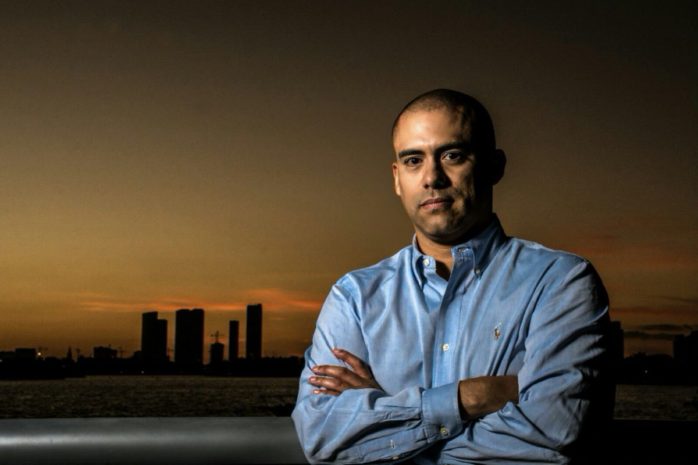After Surviving Brutal Kidnapping, Colombian Immigrant Becomes Successful Miami Entrepreneur
Date: March 25, 2016

Cristhian Mancera loved his native Colombia and had planned to stay there forever. But when he was kidnapped at age 28, he lost faith in his country. “I was held for 10 hours and thought I was going to die. I was hit in the head multiple times,” he says. Although Mancera recovered physically, he never got over how he was treated by the Colombian government. “They didn’t help me at all, and I felt really alone. There was no protection,” says Mancera. So he left Colombia and settled in Miami.
The move was difficult. He was forced to abandon the language school he’d created in Bogota, and when he arrived in 2008 the United States was in the middle of a financial crisis. He found work as a teacher, was able to save a little bit of money each month, and rented classroom space by the hour. Four years later, he opened a new school in America called United Languages, showing that determination and entrepreneurial spirit knows no boundaries. “It was a long process, and people would tell me I was crazy, but you can’t wait for someone to help you. You have to figure out a way to get started,” says Mancera. Today, the school serves 300 to 400 adults a year who want to learn English or Spanish. Recently, he added a class in Portuguese. Mancera takes pride in helping immigrants learn English. “It’s difficult to get people to adapt fully unless they learn the language,” Mancera says, adding that mastering English was the key to his mother’s adjustment to life in the United States when she moved here in 2000.
After going through what I went through, I never forget how I always feel welcome here. I would do anything to protect this country and help it grow.
Mancera, who’s currently studying to be a lawyer, would like to see a program that offers loans or grants to new immigrants, so those who don’t have a credit history can start a business. “It’s really difficult if you haven’t saved money on your own or don’t have access to capital,” he says. He was fortunate to have savings when he arrived here, but he could have opened his language school — and increased his personal spending power — much faster with access to U.S. financial institutions.
This year, Mancera will finally become a citizen. “This is the promised land, and you’re able to do anything you want here as long as you’re persistent,” he says. “After going through what I went through, I never forget how I always feel welcome here. I would do anything to protect this country and help it grow.”
